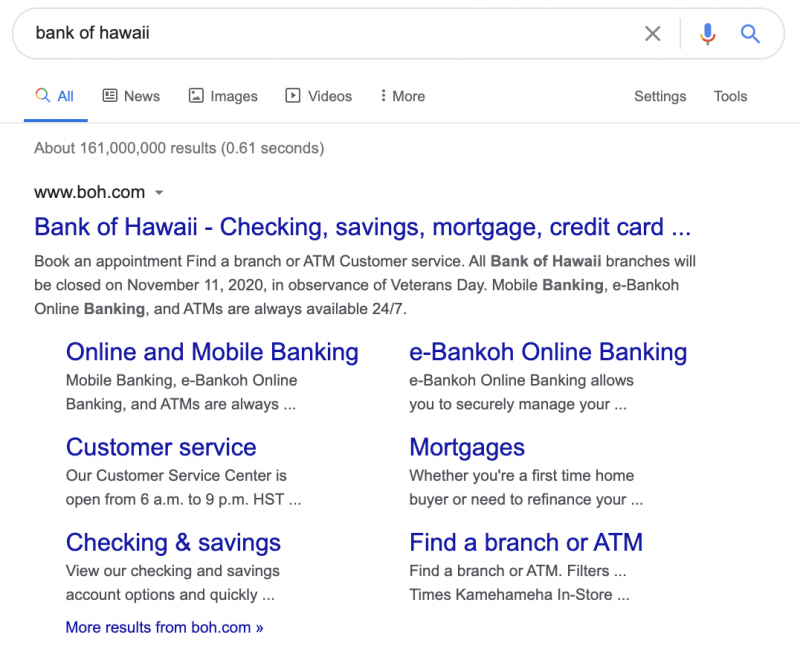If you want a website that attracts numerous visitors from search engine results, then do not overlook the value of Meta tags. Meta tags are not viewed directly on a website, but are read, categorized, and utilized by search engines to interpret the content of your page. Good Meta tags help ‘optimize’ your website when you use the correct keywords in the Meta tag text. Though Meta tags alone cannot guarantee complete optimization of a website, they are important to have as part of your arsenal for search engine optimization.
The Value of the Title Meta Tag
There are several types of Meta-tags, though, three in particular are most important. One of those is the title Meta tag – both for SEO purposes and human click-throughs to your website. Not only do the search engines give the title tag important value in ranking your website, but they show this text in their search results.
The title tag should be a short (about 5 to 10 words and less than 100 characters), clear description of your website. The succinct description should include keywords or key phrases that are relevant to your website, including your company name.
For example, if you are a floral designer whose primary key phrase is “New York floral arrangements” an appropriate title meta tag may be, “New York Floral Arrangements - Sally’s Designs”
Look below at how effectively Bank of Hawaii used their title tag.
So while you do want to keep SEO in mind, you also want to ensure that the title Meta tag can be enticing to web visitors. Simply listing a few of your keywords will not translate into optimal click-throughs from web visitors if your title tag does not make sense (e.g., run-on keywords) or is not enticing.
Optimizing Your Description Meta Tag
The description Meta tag is the line of code that describes to the search engines and the general web surfing public what your website is about. While the SEO importance of the description Meta tag has diminished over the years, it can still influence how your website is described in the results.
In some cases, when Google cannot find a more relevant snippet of text from your page as a descriptor for its results, it will use the description Meta tag when displaying your web pages in search results. For this reason, it is important to make a concise summary of your web page, usually less than 155 characters. Again, include a few of your most important keywords to help the crawlers identify the relevance and placement of your website.
Be descriptive and use action words to describe what you have to offer, such as; Learn, Watch, Read, Discover or Grab. Start the description with an action word and then follow it up with what the visitor should expect when visiting your site.
Incorporating the Keywords Meta Tag
The keyword Meta tag gives you an opportunity to elaborate upon the important keywords and key phrases of your website. Though stuffing the keyword Meta tag with hundreds of keywords is not advisable, usually a good list of 5-10 keywords is sufficient.
In the past, webmasters would use this Meta tag as a way to list every possible keyword or phrase, including business type and geography that would pertain to the business of the website. Subsequently, search engine algorithms have become leery of the “stuffed” keywords Meta tag, and thus, do not usually use this tag as part of the algorithmic search. With so many recent updates from Google, many webmasters have been leery of continuing using this practice for fear of being penalized, but if done correctly, there is absolutely nothing to fear.
Nonetheless, the keywords Meta tag can still be useful for reinforcing the relevance of your website’s topic matter on some of the search engines that do read this tag.
In addition, the keywords in your content may be combined with your Meta tag keywords to generate search results. For example, if your web content includes the key phrase “mid-century modern furniture,” while your keywords meta tag included the phrase, “Eames lounger,” then your website can have an increased probability of showing up for the search term, “mid-century modern Eames lounger.”
Incorporating the keywords Meta tag is simply another way to increase the probability that your website will be presented for more search results.
Common Meta Tag Mistakes to Avoid
While we have briefly touched upon some of the pitfalls to avoid in the Meta tags, it is important that you certainly do not commit the following Meta tag mistakes:
Incorrect implementation of meta-tags – Great title or description tags will be of no use if search engines are not reading them properly. Meta tags should be placed within the head section or your web page. It is a good idea to always check your meta-tags through online meta-tag validators such as the one on http://www.seositecheckup.com.
“Stuffing” – As we discussed earlier, the practice of “keyword stuffing” in Meta tags is no longer useful for website SEO. Top search engines are more concerned with the actual content of the web page, and thus, your hidden Meta tag keywords should be used concisely and judiciously.
Repeated keywords – Previously, webmasters believed that if incorporating an important keyword once was good, then using it 10 times was even better. This is a fallacy! Your best bet is to refrain from over-using keywords, or else your website may be viewed as spam to a search engine. You want your page to appear natural to the search engines as well as your visitors, so if you wouldn’t stuff the word recliner 50 times into a 500 word article on your furniture site, don’t try to place it in your Meta description more than once.
Using the same Meta tags for every page – Some web designers assume that one set of meta tags are good to use for every page. In fact, it is wiser to use a different set of unique and descriptive Meta tags for every web page. This increases the probability that your specific web pages will show up in the results for relevant search terms. Each page you create is unique, and you want the search engines and your visitors to get a specific value from each page right? Well, then make sure your Meta tags offer a unique description or action for visitors and search engines to determine the uniqueness.
Use only unique tags for your website – Don’t steal! Your website business is unique and your Meta tags should reflect this. Using duplicate content does not bode well for search engine results. With this in mind, you should also write new descriptions for your Meta tags, instead of borrowing sentences for your existing web copy. So, don’t go into the source of your highest competitor and copy and paste their Meta tags and descriptions for your own. You are a unique site with something unique to offer, so BE UNIQUE.
Using Irrelevant Tags – Do not use your Meta tags, Meta Titles, or descriptions to try and deceive the search engines or its visitors. If you input irrelevant descriptions, titles or keywords into your tags, you can not only expect that the visitors on your site will click back immediately upon realizing they were not being given what you promised, but you will also get a huge penalty from Google. Those high bounce rates are a huge red flag to the major search engines, and as Google continues to update its algorithms, you can expect them to become even smarter when it comes to deceptive content.
What Happens If You Don’t Use a Meta Description?
If you forget to add a Meta description to your page, Google will use a snippet from the first paragraph in your page. If you happen to have a relevant keyword in there, they will bold it for the SERP’s. Some of you may think, hey, that’s good enough, so why bother? The fact remains, it isn’t enough…and why should it be? It is your chance to market your company in the most effective way possible for free, why would you want to give up that opportunity?
Search engine algorithm technology has become extremely sophisticated. And though SEO Meta tags were developed by web designers as a useful tool for search engine indexing, the overuse and abuse of this piece of code has decreased some of its impact. However, when used as they were intended, with highly focused and concise keywords and descriptions, the Meta tags in your website can still add to the effectiveness of your search engine optimization.
Thank you for reading. Continue your journey of learning through our site SEOSiteCheckUp.com. Don’t forget to take advantage of our free SEO tools!
Join us in our daily discussions on Facebook!
